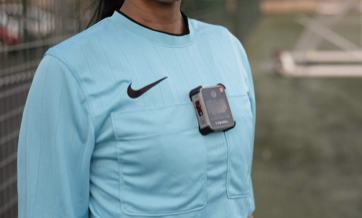April 9 – FIFA has stepped up preparations for the inaugural 32-team Club World Cup this summer by holding a series of referee seminars around the world, as the governing body seeks to ensure officiating standards match the scale and profile of its newest tournament.
The tournament, set to run from June 14 to July 13 in the United States and will be among the first to have referees officiate under a new set of rules introduced by IFAB in March, including stricter enforcement against time-wasting by goalkeepers.
A major innovation will also see referees wear bodycams during matches as part of a global trial.
“The best clubs from every corner of the world will be there,” said Pierluigi Collina, chairman of FIFA’s Referees Committee. “That means an extra responsibility for refereeing. We want our referees ready and in the best condition when the competition starts.”
To that end, FIFA has run multiple training seminars across different confederations. UEFA referees gathered at FIFA headquarters in Zurich from March 31 to April 4, while earlier sessions were held in Dubai (for officials from AFC, CAF and OFC) in February and in Buenos Aires for Conmebol and Concacaf referees.
Referencing the introduction of bodycams and their usefulness for training and performance reviews, Collina said: “It’s a good chance to offer a new viewing experience. Seeing what the referee sees can be valuable in debriefs — it’s about understanding how and why a call was made in real time.”
FIFA’s Director of Refereeing, Massimo Busacca, stressed the need for referees to remain in the background during matches. “You don’t even know what a good referee did or who he is,” he said. “But they have to be ready if something happens. Understanding the game, the players, and anticipating play is key.”
The expanded Club World Cup, featuring champions from all six confederations plus additional entrants from UEFA and Conmebol, is a priority event for FIFA, both commercially and politically. Ensuring a high standard of officiating is central to the tournament’s credibility.
Contact the writer of this story, Harry Ewing, at moc.l1744932354labto1744932354ofdlr1744932354owedi1744932354sni@g1744932354niwe.1744932354yrrah1744932354
